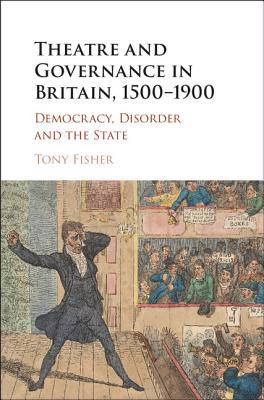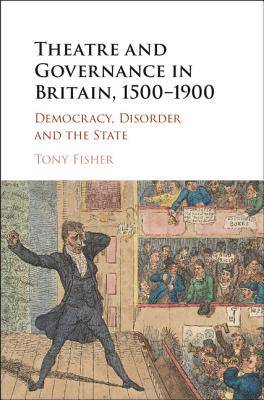
Bedankt voor het vertrouwen het afgelopen jaar! Om jou te bedanken bieden we GRATIS verzending (in België) aan op alles gedurende de hele maand januari.
- Afhalen na 1 uur in een winkel met voorraad
- In januari gratis thuislevering in België
- Ruim aanbod met 7 miljoen producten
Bedankt voor het vertrouwen het afgelopen jaar! Om jou te bedanken bieden we GRATIS verzending (in België) aan op alles gedurende de hele maand januari.
- Afhalen na 1 uur in een winkel met voorraad
- In januari gratis thuislevering in België
- Ruim aanbod met 7 miljoen producten
Zoeken
Theatre and Governance in Britain, 1500-1900
Democracy, Disorder and the State
Tony Fisher
Hardcover | Engels
€ 129,95
+ 259 punten
Omschrijving
This book begins with a simple observation - that just as the theatre resurfaced during the late Renaissance, so too government as we understand it today also began to appear. Their mutually entwining history was to have a profound influence on the development of the modern British stage. This volume proposes a new reading of theatre's relation to the public sphere. Employing a series of historical case studies drawn from the London theatre, Tony Fisher shows why the stage was of such great concern to government by offering close readings of well-known religious, moral, political, economic and legal disputes over the role, purpose and function of the stage in the 'well-ordered society'. In framing these disputes in relation to what Michel Foucault called the emerging 'art of government', this book draws out - for the first time - a full genealogy of the governmental 'discourse on the theatre'.
Specificaties
Betrokkenen
- Auteur(s):
- Uitgeverij:
Inhoud
- Aantal bladzijden:
- 290
- Taal:
- Engels
Eigenschappen
- Productcode (EAN):
- 9781107182158
- Verschijningsdatum:
- 16/06/2017
- Uitvoering:
- Hardcover
- Formaat:
- Genaaid
- Afmetingen:
- 157 mm x 231 mm
- Gewicht:
- 544 g

Alleen bij Standaard Boekhandel
+ 259 punten op je klantenkaart van Standaard Boekhandel
Beoordelingen
We publiceren alleen reviews die voldoen aan de voorwaarden voor reviews. Bekijk onze voorwaarden voor reviews.









